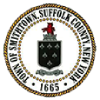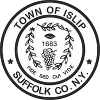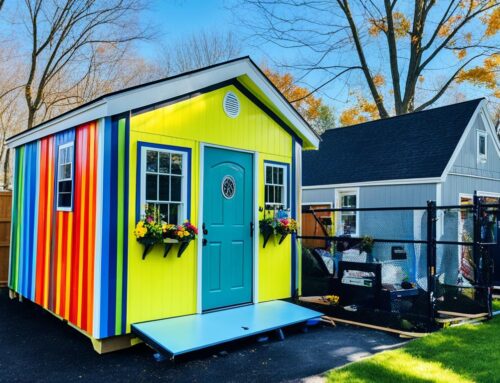Get building permits, variances, maps & COs quickly on Long Island! Call 631-492-0927 for fast service at TracisPermits.com.
Key Takeaways:
- Efficiently obtain building permits, variances, radius maps, and certificates of occupancy in Stony Brook.
- Fast and reliable service provided by Tracis Permits at 631-492-0927.
- Ensure compliance with local regulations and guidelines for successful construction projects.
- Streamline the process and save time in acquiring necessary permits and documents.
- Trust Tracis Permits for professional and prompt assistance with building approvals.
Residential Buildings and Non-Discrimination Policy
Stony Brook University is committed to providing a safe and inclusive living environment for all residents. As part of its commitment to diversity and equal opportunity, the university strictly adheres to a non-discrimination policy. This policy ensures that no individual is subject to discrimination based on protected classes, including race, religion, sex, sexual orientation, gender identity, color, national origin, age, disability, marital status, and veteran status.
The university follows Title IX guidelines, which prohibit sex discrimination, including sexual harassment and violence. Stony Brook University takes all reports of discrimination and harassment seriously and encourages residents to come forward if they experience or witness any such incidents. Complaints can be made to the Title IX Coordinator, who is responsible for coordinating the university’s response to allegations of sex discrimination.
It is important for residents to be familiar with and adhere to the university’s non-discrimination policy. By doing so, they contribute to creating an inclusive and respectful community within the residential buildings. The university aims to foster an environment where all residents feel valued and supported in their educational pursuits and personal growth.
Key Points:
- Stony Brook University prohibits discrimination based on protected classes
- Residents are encouraged to report any incidents of discrimination or harassment to the Title IX Coordinator
- The university aims to create an inclusive and respectful living environment for all residents
“We strive to create a welcoming and inclusive community for all residents, where diversity is celebrated and discrimination has no place.” – Stony Brook University
Non-Discrimination Policy: Summary Table
| Protected Classes | Policy |
|---|---|
| Race | No discrimination based on race is tolerated |
| Religion | No discrimination based on religion is tolerated |
| Sex | No discrimination based on sex is tolerated |
| Sexual Orientation | No discrimination based on sexual orientation is tolerated |
| Gender Identity | No discrimination based on gender identity is tolerated |
| Color | No discrimination based on color is tolerated |
| National Origin | No discrimination based on national origin is tolerated |
| Age | No discrimination based on age is tolerated |
| Disability | No discrimination based on disability is tolerated |
| Marital Status | No discrimination based on marital status is tolerated |
| Veteran Status | No discrimination based on veteran status is tolerated |
Occupancy Guidelines
When it comes to on-campus housing at Stony Brook University, there are specific guidelines to follow regarding eligibility and occupancy. These guidelines ensure that housing is allocated fairly and efficiently to students. Let’s take a closer look at the occupancy guidelines for different groups of students.
First-Year Students
First-year students have priority when it comes to housing in designated areas. This priority ensures that incoming students have a place to stay on campus, fostering a smooth transition into university life. By providing first-year students with on-campus housing, Stony Brook University promotes a sense of community and support among new students.
Graduate Students
For graduate students, there are specific eligibility requirements for certain residences. Stony Brook University offers various housing options tailored to the needs of graduate students. These residences provide a conducive environment for graduate students to focus on their studies and engage with their peers.
It’s important for all students to maintain their eligibility for on-campus housing during the Fall and Spring semesters. Any changes in eligibility, such as a change in enrollment status, may result in relocation or termination of housing. Students must also be aware that termination of enrollment requires vacating the assigned housing.
| Student Type | Occupancy Guidelines |
|---|---|
| First-Year Students | Priority housing in designated areas |
| Graduate Students | Specific eligibility requirements for certain residences |
By adhering to these occupancy guidelines, students can ensure a smooth living experience on campus. It is essential to be familiar with and follow these guidelines to maintain eligibility and avoid any disruptions to housing arrangements.
Financial Obligations and Release from Housing Agreement
When it comes to living in on-campus housing at Stony Brook University, it’s important to understand the financial obligations and the process for releasing from the housing agreement. The Terms of Occupancy outline the specific details regarding housing charges, payment procedures, and financial liability.
Residents are responsible for any loss or damage to personal property during their stay. It is highly recommended to obtain appropriate insurance to cover any unforeseen circumstances. Additionally, the Terms of Occupancy address meal plans and damage fees, providing clarity on the associated costs.
“Residents are responsible for any loss or damage to personal property during their stay.”
In the event that a resident needs to release from the housing agreement after the residency has begun, there may be financial liability involved. It is crucial to carefully review the Terms of Occupancy and understand the potential financial implications before making the decision to release from the housing agreement.
Financial Obligations Overview
The following table provides an overview of the financial obligations that residents should be aware of:
| Financial Obligations | Description |
|---|---|
| Housing Charges | Cover the cost of residency and utilities. |
| Payment Procedures | Outline the methods and deadlines for paying housing charges. |
| Meal Plans | Detail the available meal plans and associated costs. |
| Damage Fees | Explain the fees for any damages to the housing unit. |
Understanding and fulfilling the financial obligations outlined in the Terms of Occupancy is essential to ensure a smooth and hassle-free living experience in on-campus housing at Stony Brook University. By adhering to these guidelines, residents can enjoy their time on campus without any financial concerns or issues.
Standards of Living and Safety and Security
In order to maintain a safe and comfortable living environment, Stony Brook University has established standards of living that all residents must adhere to. These standards cover various aspects of campus life, including cooking policies, quiet hours, alcohol and drug use, pet regulations, and pest control. By following these guidelines, residents can contribute to a positive community atmosphere and ensure the well-being of themselves and their fellow residents.
In terms of safety and security, the university takes the well-being of its residents seriously. Health and safety inspections are conducted regularly to identify and address any potential hazards. Fire safety measures, including the presence of fire alarms and extinguishers, are in place to protect residents in the event of an emergency. Security protocols, such as controlled entry access and surveillance systems, help to maintain a secure living environment. Additionally, procedures for lockouts and lost keys are in place to ensure that residents can access their accommodations safely and efficiently.
Cooking Policies
Residents are allowed to cook in designated areas such as communal kitchens and individual apartment units. However, it is important to follow safe cooking practices, such as never leaving cooking unattended and cleaning up after use. Open flames, such as candles and grills, are not allowed in residential buildings for safety reasons.
Quiet Hours
Quiet hours are established to promote a conducive environment for studying and rest. During designated quiet hours, residents are expected to keep noise levels to a minimum, respecting the need for quiet and peaceful living spaces.
Alcohol and Drug Use
Stony Brook University has strict policies regarding alcohol and drug use. The use, possession, or distribution of illegal drugs is strictly prohibited, and violations may result in disciplinary action. As for alcohol, residents who are of legal drinking age must abide by the policies outlined in the Terms of Occupancy and adhere to all applicable laws and regulations.
Pet Regulations
Only service animals and emotional support animals are permitted in on-campus housing, as outlined by the university’s pet regulations. Prior approval from the appropriate university office is required for the presence of such animals, and residents must comply with all guidelines and documentation requirements.
Pest Control
The university takes measures to prevent and control pests in on-campus housing. However, residents also have a responsibility to report any pest-related issues promptly. By maintaining cleanliness and promptly reporting any signs of pests, residents can contribute to a pest-free living environment.
Summary
The standards of living and safety and security policies at Stony Brook University aim to provide residents with a safe and comfortable living environment. By adhering to these guidelines, residents can contribute to a positive community atmosphere and enjoy their time on campus. Whether it’s following cooking policies, observing quiet hours, or complying with alcohol and drug regulations, residents play an essential role in maintaining the well-being of the entire community.
Appliances, Decorations, Furnishing, and Lighting
When it comes to appliances, decorations, furnishing, and lighting in on-campus housing at Stony Brook University, there are specific guidelines that residents must follow. These guidelines ensure the safety and functionality of the living spaces while also promoting a comfortable and aesthetically pleasing environment.
Authorized Appliances
Residents are allowed to bring certain appliances for their convenience. These include microwaves, mini fridges, coffee makers, and toasters. It’s important to note that all appliances must meet safety standards and be in good working condition. Additionally, the use of appliances with open heating elements, such as hot plates or toaster ovens, is strictly prohibited due to fire hazards.
Decorations and Furnishing
Personalizing your living space is encouraged, but there are some restrictions on decorations and furnishing. Residents are allowed to hang pictures, posters, and artwork on the walls using removable adhesive products, such as sticky putty or poster strips. However, any damage caused by improper installation or removal of decorations will be the responsibility of the resident.
When it comes to furnishing, residents are provided with basic furniture, including a bed, desk, chair, and wardrobe. Additional furniture such as bookshelves and seating options can be brought in, as long as they do not obstruct walkways or pose safety hazards. It is essential to maintain a clutter-free and safe living environment.
Lighting
The Terms of Occupancy require residents to use only non-flammable lighting options. Candles and incense are strictly prohibited due to fire risks. Residents are encouraged to use alternative lighting options such as LED or compact fluorescent bulbs, which are energy-efficient and safer. It is important to prioritize both personal preference and safety when selecting lighting options for your living space.
| Authorized Appliances | Decorations and Furnishing | Lighting |
|---|---|---|
| Microwaves | Hanging pictures, posters, and artwork | Use of non-flammable lighting options |
| Mini fridges | Proper installation and removal of decorations | LED or compact fluorescent bulbs |
| Coffee makers | No obstruction of walkways | |
| Toasters | No safety hazards |
Miscellaneous and Emergency Maintenance/Custodial
When it comes to living in on-campus housing at Stony Brook University, there are certain policies and guidelines that residents should be aware of. In this section, we will explore the miscellaneous policies and emergency maintenance/custodial procedures outlined in the Terms of Occupancy. These include driving and parking regulations, storage space options, residential mailroom services, as well as the necessary steps to follow in case of emergencies, maintenance requests, or custodial issues.
Driving and Parking
Residents who plan to bring a vehicle to campus should familiarize themselves with the university’s driving and parking regulations. Parking permits are required for both resident and commuter students, and designated parking areas are available throughout the campus. It’s important to adhere to the specified parking rules to avoid fines or having your vehicle towed.
Storage Space
If you require additional storage space for your belongings while living on campus, Stony Brook University offers storage options to accommodate your needs. These storage facilities are secure and provide a convenient solution for students who may have limited space in their residential quarters. Be sure to review the guidelines and procedures for accessing and utilizing the storage spaces provided.
Residential Mailrooms
As a resident of on-campus housing, you will have access to the residential mailroom services. These mailrooms serve as a central hub for receiving and sending mail and packages. It is important to note that mail and packages should be addressed to your specific residential building and room number. Keep in mind that certain restrictions and procedures may apply to the receipt of packages and oversized mail.
In the event of emergencies, maintenance issues, or custodial concerns, the Terms of Occupancy provide clear guidelines to ensure a prompt resolution. It is essential to report any emergency or maintenance request as soon as possible, using the appropriate channels outlined by the university. Additionally, custodial issues should be reported promptly to ensure the cleanliness and upkeep of the residential spaces. By following these procedures, residents can contribute to a safe, well-maintained living environment for all.
Conclusion
In conclusion, the Terms of Occupancy provided by Campus Residences at Stony Brook University are crucial for residents of on-campus housing. These guidelines and policies ensure a smooth and enjoyable living experience for all. It is important for residents to carefully read and adhere to these terms to avoid any violations or issues that may result in the suspension or withdrawal of accommodations.
Residents should familiarize themselves with the eligibility guidelines, financial obligations, standards of living, safety and security measures, and guidelines for appliances and decorations. They should also be aware of the procedures for emergency maintenance, custodial services, and miscellaneous policies such as driving and parking.
For more detailed information, residents can refer to the complete Terms of Occupancy document provided by Campus Residences. Should you have any further questions or require assistance, please contact Campus Residences at the provided number, 631-492-0927, or visit the website at TracisPermits.com for efficient and reliable building permits, variances, maps, and Certificates of Occupancy on Long Island.
FAQ
What are the eligibility requirements for on-campus housing at Stony Brook University?
Eligibility for on-campus housing is extended to full-time students who are 18 years or older, or who will turn 18 within their first two semesters at Stony Brook University. Students must maintain their eligibility during the Fall and Spring semesters, and termination of enrollment requires vacating the assigned housing. Other changes in eligibility may result in relocation or termination of housing.
Who has priority for on-campus housing?
First-year students have priority for housing in designated areas, while graduate students have specific eligibility requirements for certain residences.
What are the financial obligations and potential liabilities for on-campus housing?
The Terms of Occupancy outline housing charges, financial liability, utilities, payment procedures, meal plans, and damage fees. Residents are responsible for any loss or damage to personal property and are encouraged to obtain appropriate insurance. Release from the housing agreement after residency begins may result in financial liability. Meal plans and damage fees are also addressed.
What standards of living are expected in on-campus housing?
The Terms of Occupancy cover standards of living, including cooking policies, quiet hours, alcohol/drug use, pet regulations, and pest control. Safety and security measures include health and safety inspections, fire safety, security protocols, and procedures for lockouts and lost keys. The university reserves the right to inspect residential quarters for unauthorized activity or violations of the Code of Student Responsibility.
What guidelines are there for appliances, decorations, furnishing, and lighting in on-campus housing?
The Terms of Occupancy provide guidelines for appliances, decorations, furnishing, and lighting. Certain appliances are prohibited, while others are authorized. Guidelines for decorations, accessibility/disability accommodations, and lighting are also outlined.
Are there any additional policies regarding driving, parking, storage, and mailrooms for on-campus housing?
The Terms of Occupancy address miscellaneous policies including driving, parking, storage space, and residential mailrooms. Emergency maintenance and custodial procedures are also addressed.
How can I make a complaint regarding sex discrimination or harassment?
Stony Brook University follows Title IX guidelines and prohibits sex discrimination, including sexual harassment and violence. Complaints can be made to the Title IX Coordinator.
Where can I find more specific information about the Terms of Occupancy?
For more specific information, refer to the complete Terms of Occupancy document provided by Campus Residences.












